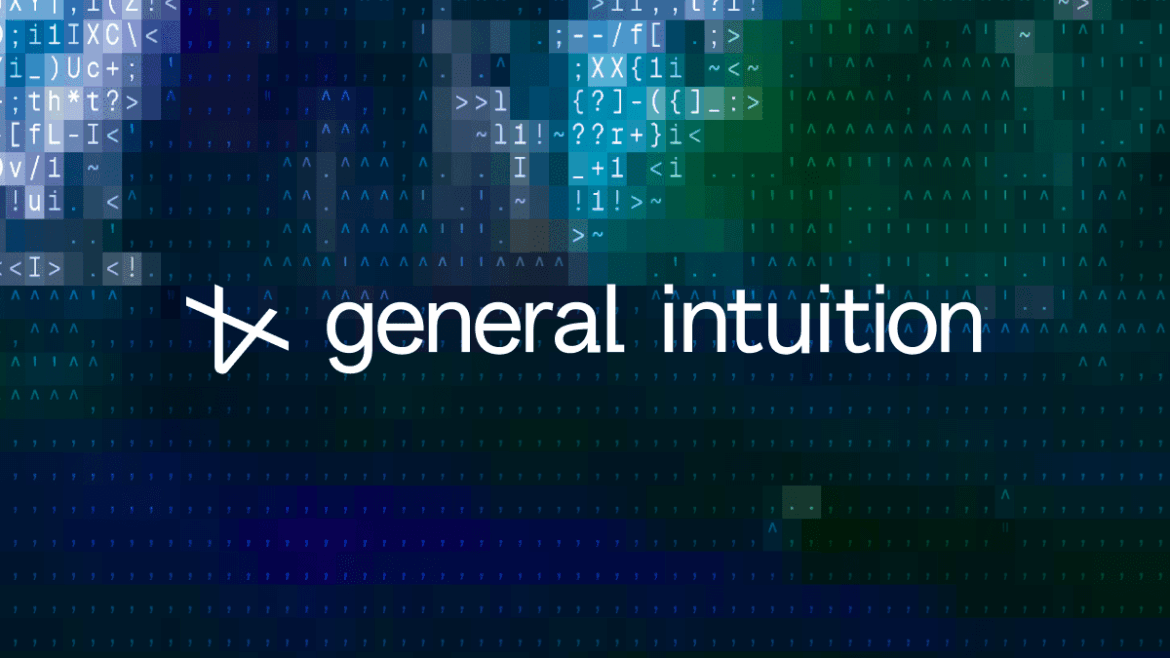Medal, a platform for uploading and sharing video game clips, has spun out a new frontier AI research lab that’s using its trove of gaming videos to train and build foundation models and AI agents that can understand how objects and entities move through space and time – a concept known as spatial-temporal reasoning.
Called General Intuition, the startup is betting that Medal’s dataset – which consists of 2 billion videos per year from 10 million monthly active users across tens of thousands of games – surpasses alternatives like Twitch or YouTube for training agents.
“When you play video games, you essentially transfer your perception, usually through a first-person view of the camera, to different environments,” Pim de Witte, CEO of Medal and General Intuition, told TechCrunch. He noted that gamers who upload clips tend to post very negative or positive examples, which serve as really useful edge cases for training. “You get this selection bias towards precisely the kind of data you actually want to use for training work.”
This data moat is what reportedly attracted the attention of OpenAI, which late last year attempted to acquire Medal for $500 million, per The Information. (Neither OpenAI nor General Intuition would comment on the report.)
It’s also what has led to General Intuition’s raising a whopping $133.7 million in seed funding, led by Khosla Ventures and General Catalyst with participation from Raine.

The startup intends to use the funds to grow its team of researchers and engineers focused on training a general agent that can interact with the world around it, aiming for initial applications in gaming, and search and rescue drones.
De Witte says the founding team has already made strides: General Intuition’s model can understand environments it wasn’t trained on and correctly predict actions within them. It’s able to do this purely through visual input; agents only see what a human player would see, and they move through space by following controller inputs. This approach, the company says, can transfer naturally to physical systems like robotic arms, drones, and autonomous vehicles, which are often manipulated by humans using video game controllers.
Techcrunch event
San Francisco
|
October 27-29, 2025
General Intuition’s next milestone is two-fold: generating new simulated worlds for training other agents, and autonomously navigating entirely unfamiliar physical environments.
That technical approach is shaping how the company plans to commercialize its technology, and sets it apart from competitors building world models.
While General Intuition is also building world models on which to train its agents, such models aren’t the product. Unlike other world model makers like DeepMind and World Labs, which are selling their world models Genie and Marble for training agents and content creation, General Intuition is focusing on other use cases to avoid copyright issues.
“Our goal is not to produce models that compete with game developers,” de Witte said.
Instead, the startup’s gaming applications center around creating bots and non-player characters that can surpass traditional “deterministic bots,” or preprogrammed characters that produce the same output every time.
“[The bots] can scale to any level of difficulty,” Moritz Baier-Lentz, a founding member of General Intuition and partner at Lightspeed Ventures, told TechCrunch. “It’s not compelling to create a god bot that beats everyone, but if you can scale gradually and fill in liquidity for any player situation so that their win rate is always around 50%, that will maximize their engagement and retention.”
De Witte also has a background in humanitarian work, which informs the startup’s focus on powering search and rescue drones, that sometimes have to navigate unfamiliar environments and extract information without GPS.
Ultimately, de Witte and Baier-Lentz see General Intuition’s core functionality – spatial-temporal reasoning — as a crucial piece in the race toward artificial general intelligence (AGI). While major AI labs focus on building ever more powerful large language models, General Intuition believes true AGI requires something LLMs fundamentally lack.
“As humans, we create text to describe what’s going on in our world, but in doing so, you lose a lot of information,” de Witte said. “You lose general intuition around spatial-temporal reasoning.”
